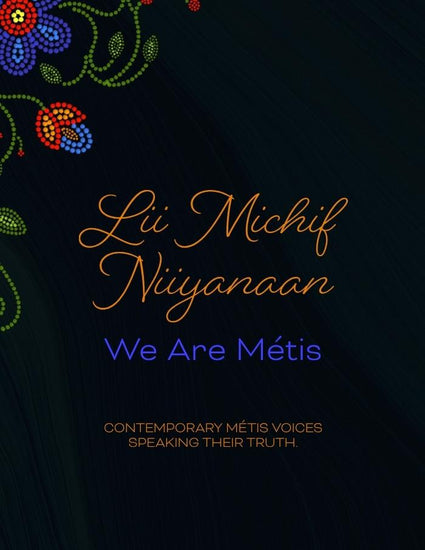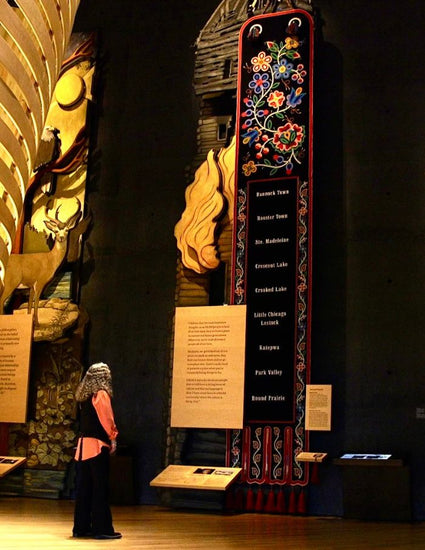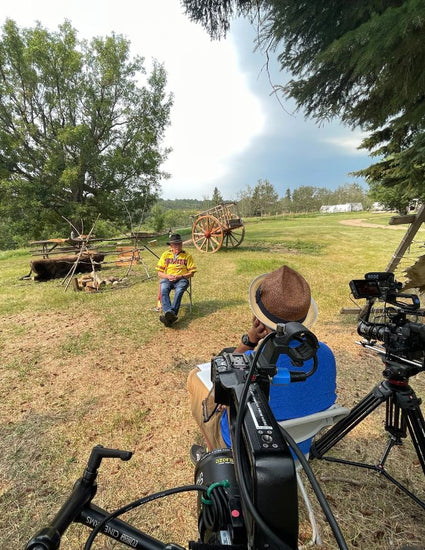Lii Michif Niiyanaan: We Are Métis
Directors
Madeline Ell Gregory CoyesProducers
Christine Welsh Gregory Coyes- Release Date 2023
- Running Time 60 minutes
- Closed Captions Yes
- Availability Worldwide
- Prix habituel
- $300.00
- Prix habituel
-
- Prix soldé
- $300.00
- Prix unitaire
- par
License Definitions
License Definitions
Institutions: Purchase at this price level if you are from a university, college, school board, school district, government agency, business or association. Note: Price does not include inter-library loan rights.
Community: Purchase at this price level if you are from a single K-12 School, registered not-for-profit, community organization, public library. Note: Price does not include right to circulate DVD/program to other schools within district.
DSL Terms
DSL Terms
DSL stands for Digital Site License and permits the buyer of the license (or Licensee) to host the film on a private, password-protected, closed server for the term of the license for educational use. If your institution does not have a server or a private third party hosting platform or you are looking into a license for curated one-time events or fixed term exhibitions, please contact us.
See below for more information about DSL terms of use. Upon order placement, our staff will contact you within 3 business days to arrange digital file delivery.
Book a Screening
Book a Screening
Impossible de charger la disponibilité du service de retrait
Partager
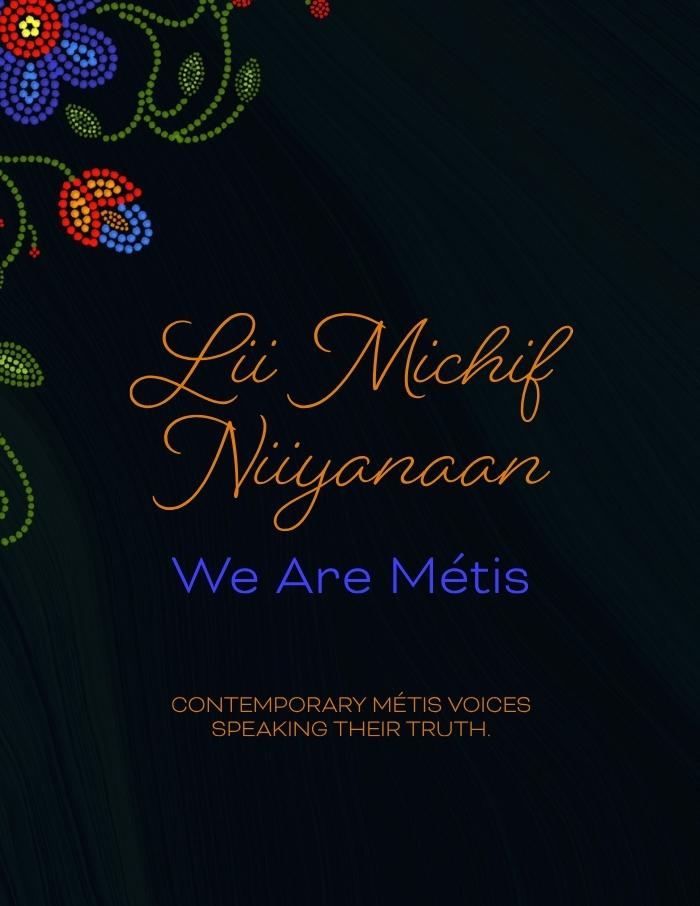
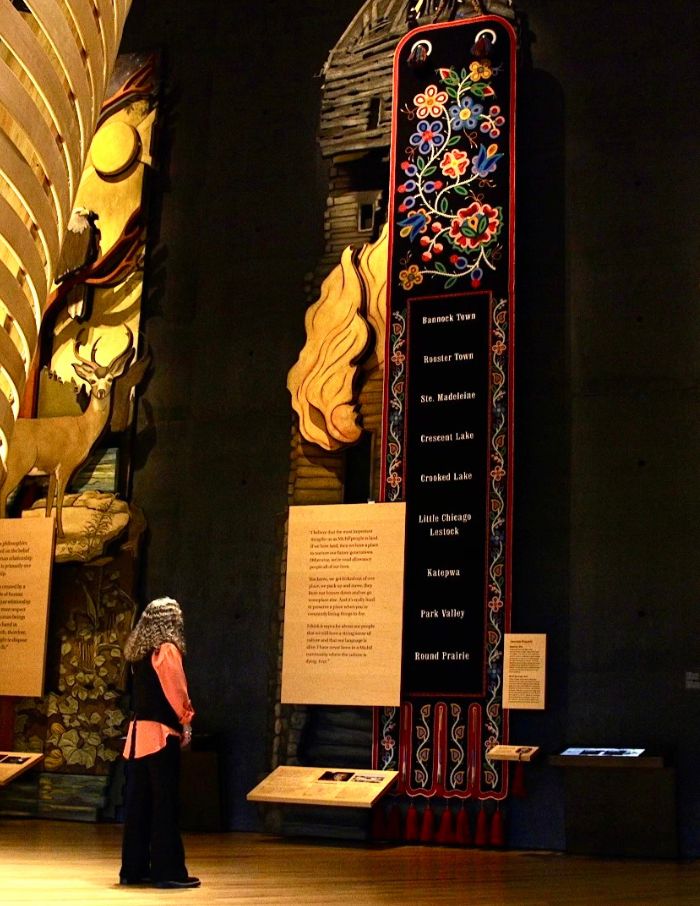
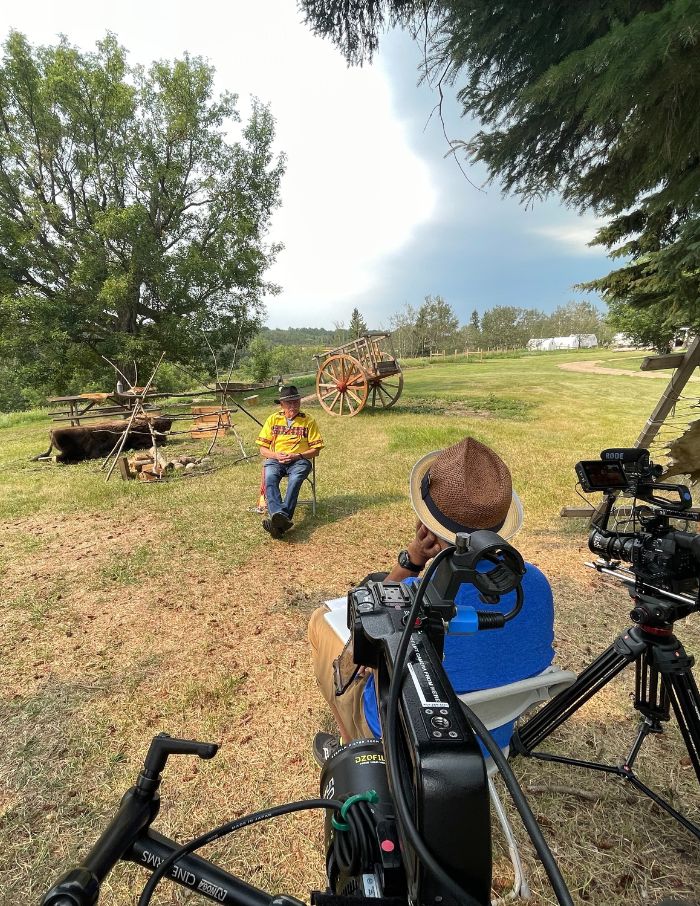
The Métis are often referred to as Canada’s “invisible people” – the “ghosts of the land” – whose stories haunt the country’s collective unconscious. Lii Michif Niiyanaan: We Are Métis is a one-hour documentary that addresses this invisibility by shining a new light on the historical and contemporary experience of Métis people in Canada and providing a space for Métis people to share their diverse perspectives on what it means to be Métis today.
Known to some as Half-breeds, and to others as otipemsiwak – “the people who own themselves” – the Métis are the vibrant result of mixed Indigenous and European ancestry and are one of three recognized Aboriginal peoples in Canada. Yet most Canadians know little about the unique place of the Métis in the Canadian mosaic, or what former BC Supreme Court Justice Thomas Berger calls “the unfinished business of reconciliation” between the Métis and the Canadian state. Featuring the voices of Métis Elders, artists, activists and scholars, Lii Michif Niiyanaan makes an essential contribution to this national conversation. The film is a love letter to the courage, determination, and resilient spirit of the Métis Nation, and a call for all Canadians to embrace the richness of their shared history.
Directors: Madeline Ell and Gregory Coyes
Producers: Christine Welsh and Gregory Coyes
Executive Producer: Jeannine Carrière
French Subtitles available on digital formats.
Biographies
Christine Welsh (Producer, Writer) is Métis with roots in the historic Red River Settlement and the Qu’Appelle Valley of southern Saskatchewan. She is an award-winning documentary filmmaker whose films include "Women in the Shadows" (1991), "Keepers of the Fire" (1994), "The Story of the Coast Salish Knitters" (2000), and the NFB feature documentary "Finding Dawn" (NFB 2006), one of the earliest calls to action on the issue of missing and murdered Indigenous women in Canada. Her 1995 film "Kuper Island: Return to the Healing Circle" (with Peter C. Campbell) featured some of the first public testimony from survivors of Canada’s Indian residential school system and is now part of the permanent archive of the Truth and Reconciliation Commission. Ms. Welsh’s films have been broadcast nationally on CBC, CTV and APTN, and have been featured at major film festivals in Canada, the U.S., France, Australia and New Zealand, as well as the 51st United Nations Commission on the Status of Women in New York. In 2009, her body of work was honoured with the WIFTV (Women in Film and Television Vancouver) Artistic Achievement Award for filmmaking excellence in telling women’s stories. She is also an Associate Professor Emerita (Gender Studies) at the University of Victoria.
Gregory Coyes (Producer, Co-Director) is Métis from St. Albert, Alberta. An award-winning filmmaker of Métis/Cree and European descent, over the last 35 years he has created programming for most of the major broadcasters in Canada. His portfolio includes "Stories from the 7th Fire," a four-part Cree animation series featuring the designs of Norval Morrisseau, and "Live from the Hundred Years Café," a contemporary Indigenous music series which he also hosted. "No Turning Back" (1996) documented the important work of Canada’s Royal Commission on Aboriginal Peoples, and "How the Fiddle Flows" (2002) traces the unique evolution of the Métis musical tradition. Gregory is currently working on the development of the Slow Media Community, a decolonized approach to cinema that gathers the power of nature to nurture both ourselves and our communities. Slow Media was the subject of his 2018 Masters thesis at UBC. And Gregory is currently teaching at North Vancouver’s Capilano University and where he is the co-ordinator of the Indigenous Digital Media program.
Madeline Ell (Co-Director, Narrator, Editor) is Métis with roots in the historic Red River Settlement and the Qu’Appelle Valley of southern Saskatchewan. Born in Calgary, her ingrained spirit of adventure has taken her around the globe, giving her a unique perspective on stories and storytelling. Madeline started her video and digital communications career working on the Vancouver 2010 Olympic Games and her portfolio now includes collaborations with brands of all kinds including TELUS, NYU Abu Dhabi, The Special Olympics World Games, G-Day for Girls, Ronald McDonald house, BC Women’s Hospital, and YMCA. A career in digital storytelling has been an invitation for Madeline to connect with audiences that are always changing. She feels a deep responsibility to the people and cultures that she captures with the camera, and uses this trust to produce humble, honest, and touching content in a wide range of media. "Lii Michif Niiyanaan" is Madeline’s first foray into feature-length documentary filmmaking, and her first appearance as an on-screen narrator. As with all her projects, she brings to it a fresh perspective, an open heart, and a profound respect for the stories she tells.
Dr. Jeannine Carrière (Executive Producer) is Métis and originally from the Red River area of southern Manitoba. She has been teaching at the University of Victoria in the School of Social Work, Indigenous Specializations, since 2005 and previously taught in the Faculty of Social Work at the University of Calgary. Dr. Carrière has been a practitioner in Aboriginal child and family services for over thirty-five years and has conducted several research projects related to Métis child and family wellness, Indigenous adoptions and identity, and advancing Indigenous knowledges. She is the author of several publications including the books "Calling Our Families Home: Métis Peoples’ Experience With Child Welfare" (2017) and "Speaking the Wisdom of Our Times" (2020), both co-edited with Dr. Catherine Richardson.
If your institution does not have a server or you are looking into a license for curated one-time events or fixed term exhibitions, please contact us.
Digital Site License (DSL) to Use Copyrighted Material - Terms of Use
The following terms are understood, accepted and effective upon payment of License Fee to Moving Images Distribution, the Licensor, and the buyer, the Licensee, named on the invoice. Copyrighted material, as identified on the invoice, hereinafter referred to as the Program.
- License: The Licensor hereby grants to the Licensee, for the DSL term listed on the invoice, the educational rights for digital streaming of the Program for use within the Licensee’s private, closed system, password-protected platform. Licensee acknowledges it shall not sublicense, sublease, rent, resell, duplicate, digitize or transfer to any other medium or format. Licensee shall not edit, cut or alter the Program nor post it on publicly-accessible websites or networks. This license (i) will not be included in any courses that could be sold to other institutions for future distance-education use; (ii) is non-transferable; and (iii) is not assignable by the Licensee.
- Users: The Licensee agrees that the users for this license shall be restricted to the Licensee’s accredited faculty, staff, students, and walk-in Library patrons.
- Expiration of Term: Upon expiration of the license term, the Licensee shall cease streaming of the Program and the Program must be inaccessible to Users after license term expiry or deleted from the Licensee’s digital servers upon expiry.
Acknowledgement of Limitations: The Licensee acknowledges the Program is copyrighted and the Licensor has a copyright interest in the Program which is legally protected against the Licensee’s use, copying or exhibition except as is set out above.
DVD w/PPR. PPR stands for Public Performance Rights. A DVD with PPR license permits the buyer to use the film in non-theatrical venues for educational purposes, community screenings and other non-commercial purposes. Standard educational DVD w/PPR purchases are in perpetuity for use by the institution, college, school, library, its staff and students.
All DVDs sales are final. We guarantee that all DVDs will be free from defects at the time of delivery. Defective DVDs will be replaced without charge within 30 days of date of shipment.
The creators of all works distributed by Moving Images Distribution hold copyright for their work. Copyrights are a form of intellectual property that gives the owner of the original work exclusive rights to that work, including its publication, distribution, adaptation and use. All purchasers are to specify use required precisely at time of ordering and agree to comply with all copyright, trademark and intellectual property law. No materials purchased may be used outside the rights acquired at time of purchase or may be reproduced in whole or in part by any method now known or hereafter devised. No materials purchased without specific broadcast license and agreement may be broadcast, retransmitted or exhibited in whole or in part without a specific license agreement from Moving Images Distribution for such use.

